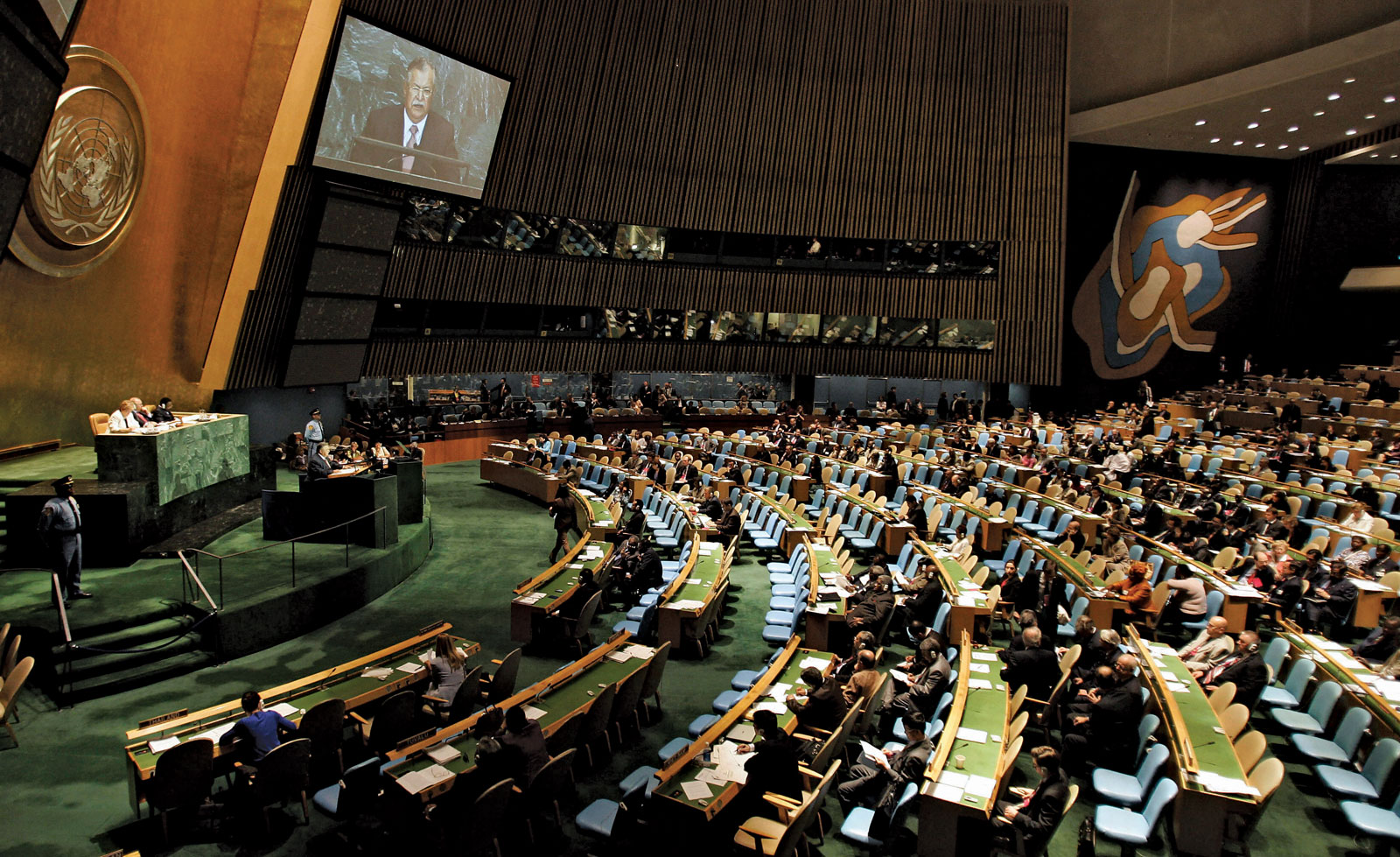
This past week marked the 65th session of the United Nations General Assembly, where leaders and representatives of over 140 nations came together to discuss world politics. This forum provides a stage upon which all countries, not just those who seem to dominate the world’s stage on a continual basis, have a chance to express their grievances for all to hear. The assembly seeks to address issues such a progress in developing nations, human rights, trade relations, power struggles and millennium development goals and this year they had more than enough to talk about. Though many consider these proceedings a simple example of political posturing as no votes are taken and rarely does any action arise from these meetings, they do provide a platform through which nations not inclined to enter talks with each other by their own accord are forced to sit and discuss their issues.
President Obama used these meetings as an opportunity to discuss many problems such human rights, global development policy, and the global recession but most significantly, the problems in the Middle East. Obama spoke out, calling for the support of UN member countries to encourage peace talks in the Middle East between Israel and Palestine: “If an agreement is not reached, Palestinians may never know the pride and dignity that comes with their own state. Israelis will never know the certainty and security that comes with sovereign and stable neighbors that are committed to coexistence.” These words come at an important moment in the peace making process as the moratorium on Israeli construction in the west bank region has come to an end. President Abbas of Palestine stressed the need for the suspension of these construction projects in order for peace talks to continue. Obama warned that if peace talks break down yet again, “the Holy Land will remain a symbol of our differences, instead of our common humanity.”
Developed nations voiced complaints about Iran’s development of a nuclear program and its failure to adhere to the nuclear non-proliferation treaty, though as usual their concerns fell on the defiant ears of Iranian President Ahmadinejad. Never failing to stir up controversy, Ahmadinejad undermined his recent message of resuming diplomatic talks with the United States by revisiting 9/11, claiming that “some segments within the U.S. government orchestrated the attack to reverse the declining American economy and its grips on the Middle East in order also to save the Zionist regime.” Additionally he called for the UN to set up a fact-finding committee to investigate his unsupported claims. After hearing these opening comments, at least 33 member nations such as the U.S., Australia, New Zealand, Canada, Costa Rica, and all members of the EU simply up and left the meeting in a show of disapproval. International frustration with Iran’s stance of non-compliance and spouting of conspiracy theories is evident as just this summer, UN members imposed the fourth set of sanctions against the Middle Eastern nation in addition to Russia’s recent decision to cancel their deal to sell Iran advanced missile defense systems.
Though not attracting media attention comparable to their larger, more developed counterparts, smaller nations took the podium as well. Many of their comments address the clear imbalance of power inherent in the structure of the United Nations, with complete veto power granted to the world’s most powerful nations: the United States, China, France, Russia, and the UK. President Kagame of Rwanda and President Wade of Senegal both expressed frustration about the lack of African representation on the U.N. Security Council while President Mugabe of Zimbabwe and President Ahmed of Somalia both called for increased international aid in for African countries suffering from the global economic crisis and extreme poverty.
The complaints of these countries are timely, given the focus of this general assembly meeting on discussing the status of the United Nation Millennium Goals. These goals aim to eradicate extreme poverty and address global issues such as hunger, disease, inequality, health, and education. Though many developed countries see U.N. and global trade policies beginning to lift many of the world’s destitute out of their situation, it is clear that the countries in which these changes would have the most impact have yet to experience results. Only time will tell if international efforts will meet the projected 2015 deadline for these initiatives, but onlookers can find promise in the fact that these diverse and distinct countries are trying to work together to achieve these ends.
